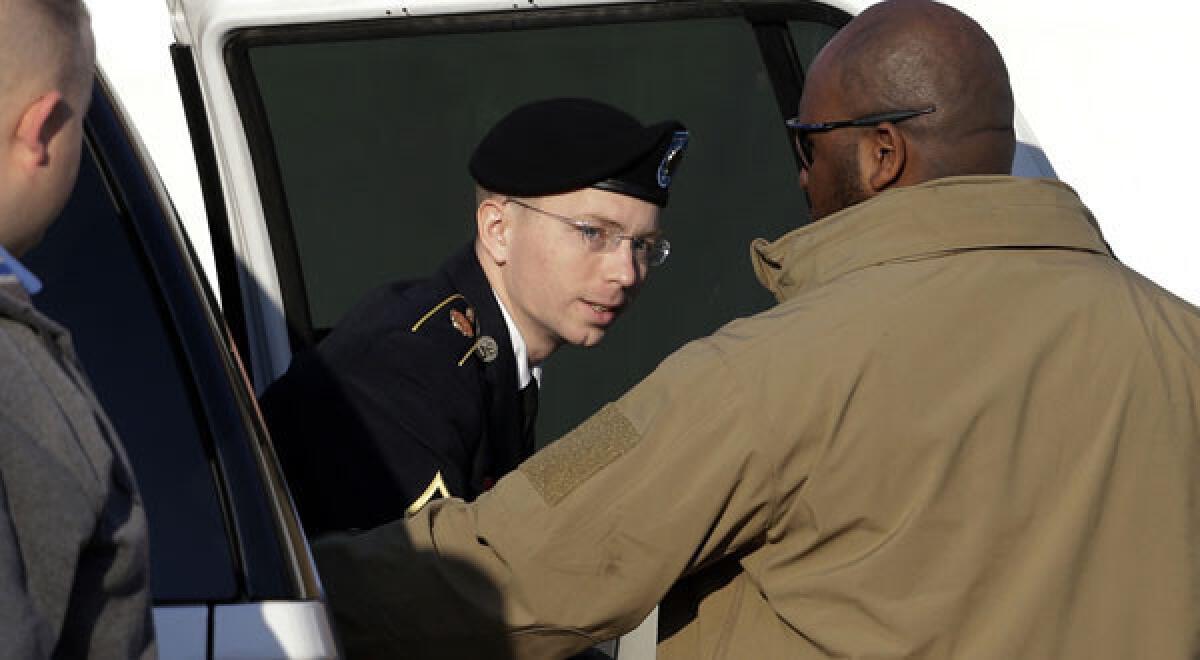Bradley Manning’s trial delayed for more pretrial proceedings

Pfc. Bradley Manning’s trial on whether he gave a treasure trove of classified documents to WikiLeaks has been delayed about a month, a military judge said Sunday.
The delay is intended to allow more time for pretrial proceedings, which continued Sunday with more testimony after the announcement.
The military judge in the case, Col. Denise Lind, announced the delay at a pretrial hearing at Ft. Meade, outside Washington, the Associated Press reported. Manning’s trial, which had been set to begin Feb. 4, will be pushed back to mid-March.
Manning, a former intelligence analyst in Baghdad in 2009 and 2010, stands accused of sending hundreds of thousands of logs about the wars in Iraq and Afghanistan and more than 250,000 diplomatic cables to WikiLeaks, the semi-defunct anti-secrecy activism group.
If convicted of the most serious count of the 22 charges against him — aiding the enemy — Manning could face life in prison.
The viability of the military’s case against Manning could pivot on whether its treatment of him during a nine-month solitary confinement at a 48-square-foot brig cell in Quantico, Va., constituted illegal punishment.
Manning was stripped of his clothing, forced to sleep naked for several nights and required to stand naked at attention one morning, conditions that a United Nations investigator called cruel, inhuman and degrading, but stopped short of calling torture.
Prosecutors said Manning was a suicide risk, which Manning acknowledged during testimony last week after prosecutors confronted him with a noose, and argued he was in need of protection from self-harm or harming others.
Manning’s attorneys said the treatment constituted illegal punishment. The defense presented two psychiatrists who said the brig commander kept Manning in close confinement despite their recommendations.
More to Read
Sign up for Essential California
The most important California stories and recommendations in your inbox every morning.
You may occasionally receive promotional content from the Los Angeles Times.











